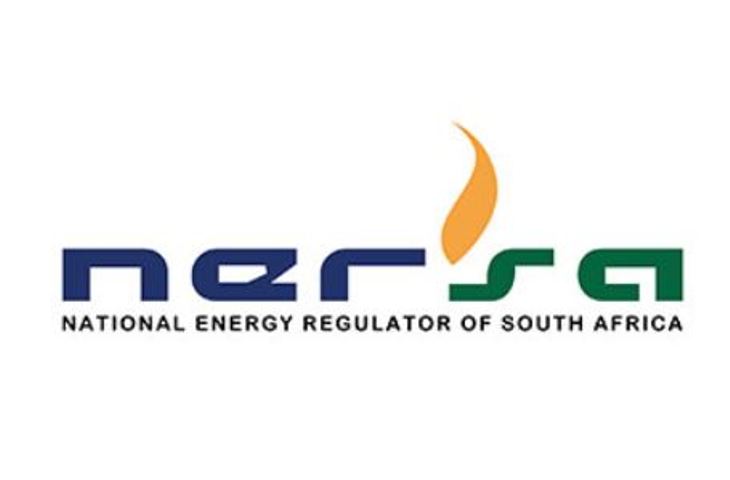NERSA Extends Deadline for Submissions on Fixed and Capacity Electricity Charges
NERSA noted that the extension recognises the complexity and significance of the issues under review and aims to ensure broad participation.

- Country:
- South Africa
The National Energy Regulator of South Africa (NERSA) has announced an extension to the deadline for written submissions and supporting evidence relating to its ongoing market inquiry into Fixed Charges, the Generation Capacity Charge (GCC), and other related tariffs levied by electricity distributors, including Eskom and municipalities.
The inquiry, launched in response to growing public concern over escalating fixed and capacity-based charges, will assess whether these costs are justified, transparent, and equitably applied across the electricity distribution sector. NERSA said the extension will ensure that all stakeholders have sufficient time to prepare comprehensive and evidence-based submissions, without delaying the overall timeline for final recommendations.
Inquiry into the Structure and Impact of Electricity Charges
NERSA's market inquiry stems from section 4(b)(ii) of the Electricity Regulation Act, 2006 (Act No. 4 of 2006), read together with sections 2(b) and 4(a)(viii), which empower the regulator to investigate matters of public interest affecting the electricity supply industry.
The inquiry was formally initiated with the publication of its Terms of Reference (TOR) on 25 September 2025, outlining the scope, methodology, and expected outcomes of the review. It focuses specifically on the formulation, application, and financial impact of fixed and capacity-related charges—especially in cases where increases have exceeded Eskom's approved 12.74% average tariff adjustment for the 2025/26 period.
"While NERSA appreciates the importance of this matter and the diligence required to provide meaningful inputs, it is equally mindful of the urgency with which the inquiry must be concluded," said Nomfundo Maseti, Regulator Member responsible for Electricity Regulation. "The extension is therefore granted on the understanding that it will not compromise the quality or thoroughness of stakeholder submissions."
Revised Submission Deadline and Participation Details
Initially, stakeholders were required to submit inputs by 25 October 2025. However, following multiple requests from municipalities, energy industry associations, consumer groups, and corporate users for additional time to prepare detailed evidence, the regulator has extended the deadline to 8 November 2025.
NERSA noted that the extension recognises the complexity and significance of the issues under review and aims to ensure broad participation. "This additional time will allow for meaningful engagement by all affected parties, including Eskom, municipal distributors, and customers," the regulator said in a statement.
All submission procedures and documentation requirements outlined in the original notice remain in effect. The TOR document and guidelines for participation can be accessed via email at electricity.marketinquiry@nersa.org.za or downloaded from NERSA's official website at www.nersa.org.za under Select Industry > Electricity > Consultation > Documents.
Public Hearing to Proceed as Scheduled
Despite the deadline extension, NERSA confirmed that the public hearing for oral representations will take place as planned on 17 November 2025. The hearing will be conducted virtually via Microsoft Teams and simultaneously livestreamed on X (formerly Twitter) and YouTube, ensuring wide accessibility and transparency.
The hearing will provide an opportunity for stakeholders to present their evidence and arguments directly to the regulator, enabling a balanced review that considers perspectives from government, industry, and consumers.
Focus on Transparency and Fair Regulation
The market inquiry comes amid growing debate over the structure of electricity tariffs in South Africa, particularly the introduction of fixed and generation capacity charges that many customers argue have led to unexpected bill increases—even for users who consume less power.
Consumer groups and industry experts have questioned whether these charges align with cost-reflective principles or risk disproportionately burdening households and small businesses. Municipalities, in turn, argue that such charges are necessary to recover fixed infrastructure and network maintenance costs.
NERSA's inquiry will evaluate these competing claims through an evidence-based approach, examining how charges are calculated, communicated, and approved, and whether they are consistent with the Electricity Pricing Policy and the National Energy Regulator's Tariff Guidelines.
"Through this inquiry, NERSA aims to reinforce regulatory stewardship, advance transparency, and support a sustainable, efficient electricity supply industry," the regulator stated.
Balancing Affordability and Financial Sustainability
Analysts note that the findings of this inquiry could have far-reaching implications for South Africa's energy pricing model, which faces mounting pressure amid rising costs, infrastructure deficits, and declining demand from large customers turning to renewable alternatives.
Fixed and capacity-based charges have become increasingly common across the sector, as distributors seek to maintain financial stability amid reduced electricity sales. However, the approach has also raised concerns about affordability and fairness, particularly for low-income households and small businesses already struggling with high energy costs.
The inquiry's conclusions are expected to inform future tariff-setting frameworks and policy reforms, ensuring that the country's electricity pricing structure supports both financial sustainability for utilities and equitable access for consumers.
A Step Toward Accountability and Reform
As South Africa navigates the challenges of energy transition, decarbonization, and grid modernization, regulatory oversight remains critical. By undertaking this inquiry, NERSA aims to restore public confidence, ensure cost transparency, and guide reforms toward a more inclusive and efficient electricity sector.
Stakeholders and the public are encouraged to submit data, case studies, or analyses that can contribute to the regulator's evidence base ahead of the 8 November 2025 deadline.
The regulator's final report and recommendations are expected to be released in early 2026, providing a roadmap for fair, transparent, and sustainable electricity tariff structures in South Africa.









